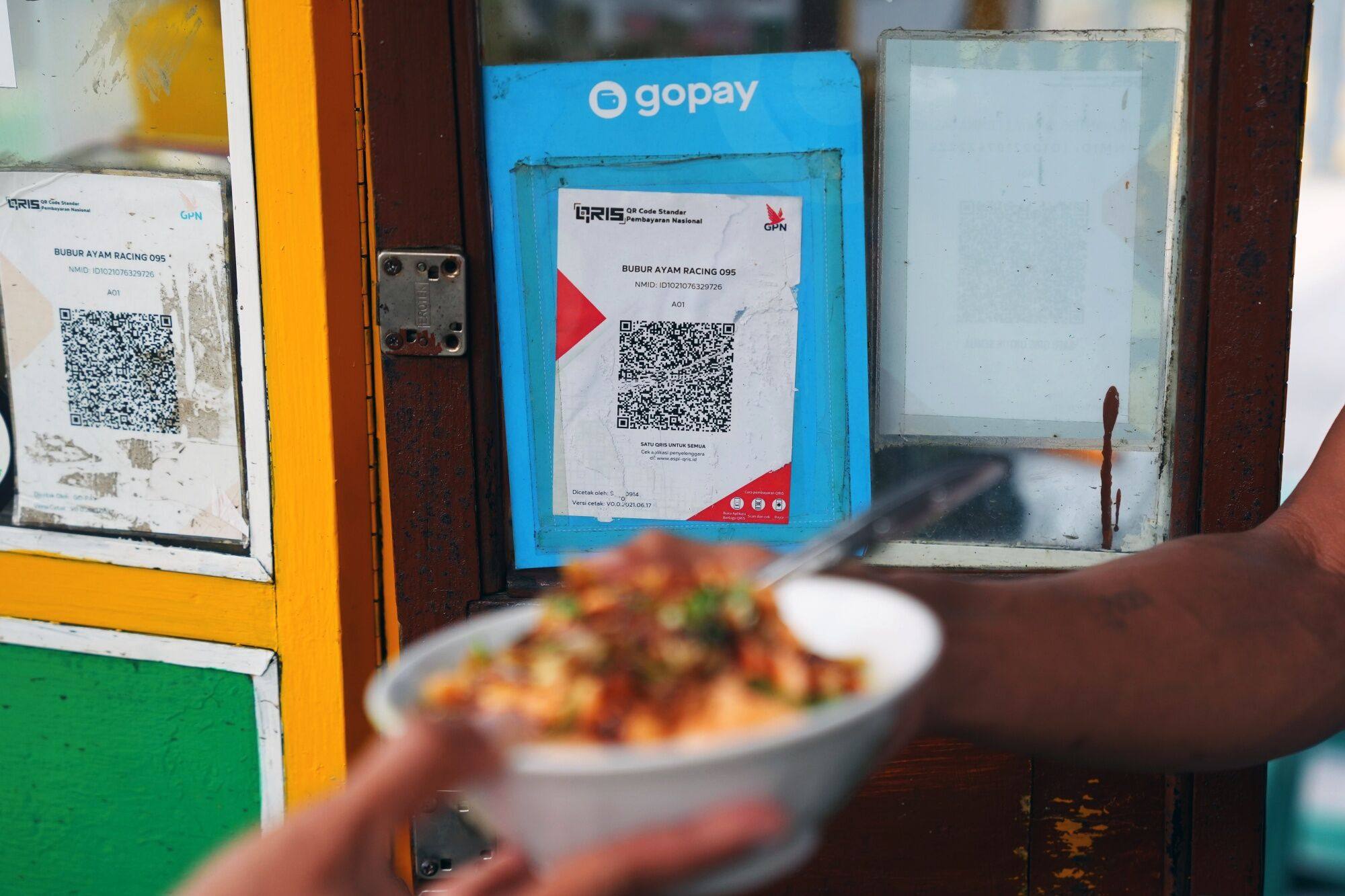The official was referring to the Quick Response Code Indonesia Standard (QRIS), a national app-based electronic payment platform recognized by most banks in Indonesia. Launched in 2020, the system can be used to pay for everything from public transport fares to restaurant fares and is approved by governments and the private sector.
Jokowi faces fresh criticism after saying president “can be on either side'' in election
Jokowi faces fresh criticism after saying president “can be on either side'' in election
But for many Indonesians accustomed to handling cash, the use of new technology raises fears of intrusive bureaucratic surveillance and job loss.
Budi Rahardjo, founder of Indonesian AI research company PT Riset Kecerdasan Buatan, said Indonesians need to get used to digitalization as it will have a major impact on all aspects of daily life.
“People need to adopt it because it can impact the efficiency of how things are done,” he said.
Bali explosions: Bereaved families denounce 'secret deal' in sentencing of Malaysian co-conspirators
Bali explosions: Bereaved families denounce 'secret deal' in sentencing of Malaysian co-conspirators
A bold vision for Nusantara
Abdullah Azwal Anas, Minister of Administrative and Bureaucratic Reform, said in a statement on January 23 that Nusantara will have an AI-powered “digital government” by 2045.
“Our short-term goals are to relocate civil servants to the new capital, gradually establish digitalization in government affairs, and better prepare for eventual smart governance,” he said. .
Abdullah outlined five stages for Nusantara’s bureaucracy to become fully digital between now and 2045.
While welcoming the government's bold vision, Budi said establishing such a futuristic capital requires careful planning.
“Indonesia is not the first country to envision an AI-run smart city, and no country has succeeded in realizing it so far.”

Asked about potential job losses due to technology, Budi said that while some roles may become redundant, humans will always have a role to play in the workplace. “You can always train machines to do other things that they can't do,” he added.
Other technology experts are less certain about the government's vision for high-tech Nusantara.
Sulfikar Amir, associate professor of science, technology and society at Nanyang Technological University (NTU), cited Indonesia's budget constraints and a more decentralized government system as key challenges to realizing the goal.
“As a future capital, the site Nusantara occupies is an unlikely location in the middle of a forest, and this would mean huge costs that would likely reach several times the government's estimate.”
'People need entertainment': Indonesia's porn crackdown sparks uproar
'People need entertainment': Indonesia's porn crackdown sparks uproar
In comparison, Xiongan has already received a total of USD 57 billion of investment as of September 2022.
Sulfikar said Nusantara lacks the physical ecosystem and bureaucracy to support its technological goals.
weak legal framework
Sulfikar said the idea that technology could be a panacea to transform Indonesia's inefficient government system is naive.
Indonesia walks a 'political' tightrope with China over arms trade with Manila
Indonesia walks a 'political' tightrope with China over arms trade with Manila
One major concern is whether Indonesia's legal framework is robust enough to support digitalization efforts.
Without such a framework, Indonesia would be unable to protect residents' personal data from misuse, Sulfikar said.
In July 2023, Teg Aprianto, founder of Ethical Hacker Indonesia, revealed that the personal data of 34 million Indonesian passport holders was being traded on the dark web. That same month, the personal information of more than 300 million Indonesians was extracted from the country's national ID card database and put up for sale.
Even the benefits that were thought to be possible through digitalization are being questioned in certain sectors, such as education.
For example, one study found that 15 lecturers at public universities in Indonesia reported lower work performance and decreased happiness as a result of implementing a “digital-based audit culture.”
According to a study conducted by sociologists Oki Rahadianto Supo and Gregorius Lagil W. at Gajah School in Yogyakarta, “the impersonal approach of technology here is far from liberating instructors' creativity.'' , because they are forced to work harder to meet the academic grades set by the app,” Mada University.
“It's fine to have a high vision, but Indonesia must first clean up its old house before moving to a new one.”



